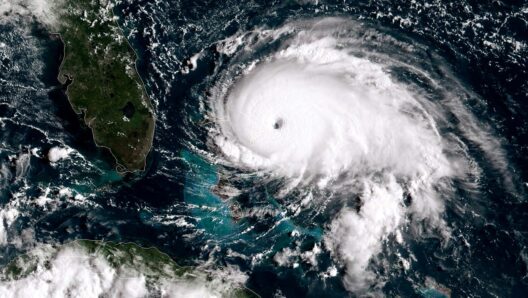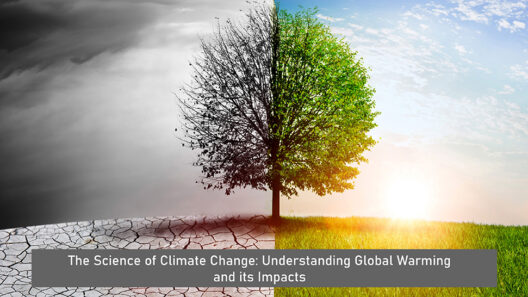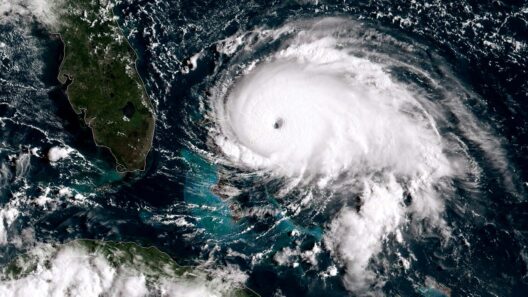The Maldives, an enchanting archipelago nestled within the crystal-clear waters of the Indian Ocean, stands as a poignant emblem of beauty and vulnerability. Picture an exquisite necklace, each pearl a coral island, strung together by the shimmering azure sea. However, this jewelry is perilously close to being submerged, as the relentless tides of climate change encroach upon the delicate shores. The rising sea levels have transformed the Maldives into a harbinger of ecological fragility, embodying the reality faced by countless low-lying nations worldwide.
With an average elevation of just 1.5 meters above sea level, the Maldives is uniquely susceptible to the existential threat posed by climate change. As global warming intensifies, glaciers and polar ice caps melt, contributing to rising ocean levels that imperil coastal communities everywhere. The predictions are stark; scientists estimate that if current trends continue unchecked, entire islands could vanish within our lifetimes, eroding not only the physical land but also the cultural heritage of the Maldivian people.
Once a tranquil paradise thriving on tourism, the archipelago now finds itself in a frantic race against time. Coastal erosion, exacerbated by storm surges and increasingly volatile weather patterns, threatens to reclaim significant portions of land. As seawater infiltrates freshwater aquifers, the delicate ecosystems that have thrived for centuries are disrupted, leading to saltwater intrusion and a decline in agriculture. The fishermen, once buoyed by bountiful catches, now grapple with diminishing fish stocks, as the delicate marine life suffers from changing habitats.
In response to the cascading environmental crises, the Maldivian government has embarked on an ambitious initiative: the construction of fortress islands. This avant-garde solution encapsulates the innovative spirit of a nation shattered yet determined, as they strive to forge resilient havens amidst an ominous reality. These artificial islands will be fortified with robust infrastructure designed to withstand the punishing forces of nature, ensuring a sustainable habitat for future generations.
These fortress islands are not merely a physical response to climate challenges; they symbolize the resilience and ingenuity of the Maldivian spirit. Much like a phoenix rising from ashes, the nation is challenging the inevitability of its plight. But can engineering triumph over nature’s fury? The answer lies not only in the construction of barriers and walls but also in a comprehensive understanding of sustainable practices and environmental stewardship.
Maldives’ innovative projects are part of a broader narrative addressing climate change across the globe. The archipelago has initiated various sustainability initiatives aimed at reducing its carbon footprint, promoting renewable energy, and fostering eco-friendly tourism practices. The country’s efforts to harness wind and solar energy are commendable but require global partnership and support. As the Maldives endeavors to protect itself, it simultaneously calls upon the international community to take decisive action against climate change.
Yet, the challenges extend beyond mere infrastructural responses. The Maldivian population, known for their rich traditions and unique cultural practices, faces a profound identity crisis. Will the submersion of their homeland lead to the erasure of their cultural heritage? The nation’s folklore is replete with stories that echo the whispers of the ocean; these tales risk being lost forever. The implications of rising seas transcend geography— they entwine themselves with the very fabric of Maldivian identity.
To illustrate, consider the ancient coral masonry that adorns the traditional Maldivian mosques. These architectural marvels are testaments to craftsmanship and cultural expression, yet they stand perilously close to obliteration. As seawater erodes these sacred structures, the physical embodiment of the nation’s history faces an uncertain destiny. Much like the coral reefs themselves, these mosques form an intricate tapestry, woven together by the stories of generations past. Their potential loss highlights the critical need for urgent action sprinkled with a profound respect for cultural preservation.
The Maldives also serves as a litmus test for global climate policies. As a small island developing state, it is often overlooked on the international stage. However, its plight underscores the dire consequences of climate inaction and the moral imperative for wealthier nations to assist vulnerable populations. The integration of adaptation and mitigation strategies in climate policy is crucial not only for the Maldives but also for many nations whose survival hinges on these strategies. As the world grapples with the implications of climate change, the Maldivian crisis reverberates like a rallying cry for collective action.
In conclusion, the Maldives stands at a precarious juncture. Will it succumb to the forces of nature, or can it emerge as a beacon of hope and resilience? The future of this island nation is entwined with the actions taken today. The construction of fortress islands is but one chapter in a larger narrative demanding systemic changes in how humanity interacts with its environment. As the tides rise, we must rally together, guided by empathy and determination, to safeguard not just the Maldives but the future of our planet. This island nation, rich in beauty and history, deserves a fighting chance against the rising seas that threaten to claim it.








